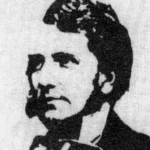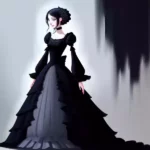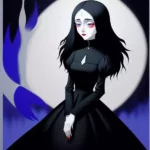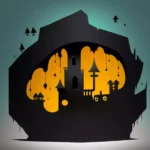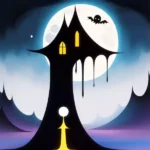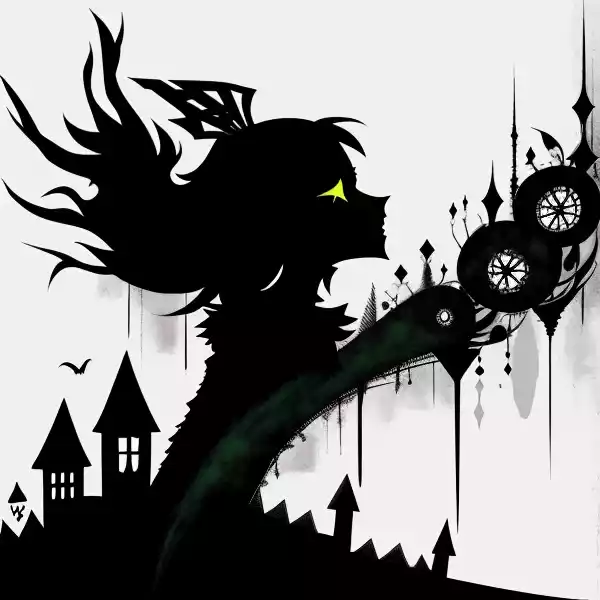 | |
Scraps of Hibernian Ballads | |
| Author | Joseph Sheridan Le Fanu |
|---|---|
| Published |
1839
|
| Language | English |
| Nationality | Irish |
| Genre | Gothic Fiction, Supernatural |
1839 Short Story
Scraps of Hibernian Ballads
Scraps of Hibernian Ballads is an English Gothic Fiction, Supernatural short story by Irish writer Joseph Sheridan Le Fanu. It was first published in 1839.
Scraps of Hibernian Ballads
by Joseph Sheridan Le Fanu
Being an Eighth Extract from the Legacy of the late Francis Purcell, P. P. of Drumcoolagh.
I have observed, my dear friend, among other grievous misconceptions current among men otherwise well-informed, and which tend to degrade the pretensions of my native land, an impression that there exists no such thing as indigenous modern Irish composition deserving the name of poetrya belief which has been thoughtlessly sustained and confirmed by the unconscionable literary perverseness of Irishmen themselves, who have preferred the easy task of concocting humorous extravaganzas, which caricature with merciless exaggeration the pedantry, bombast, and blunders incident to the lowest order of Hibernian ballads, to the more pleasurable and patriotic duty of collecting together the many, many specimens of genuine poetic feeling, which have grown up, like its wild flowers, from the warm though neglected soil of Ireland.
In fact, the productions which have long been regarded as pure samples of Irish poetic composition, such as ‘The Groves of Blarney,’ and ‘The Wedding of Ballyporeen,’ ‘Ally Croker,’ etc., etc., are altogether spurious, and as much like the thing they call themselves ‘as I to Hercules.’
There are to be sure in Ireland, as in all countries, poems which deserve to be laughed at. The native productions of which I speak, frequently abound in absurditiesabsurdities which are often, too, provokingly mixed up with what is beautiful; but I strongly and absolutely deny that the prevailing or even the usual character of Irish poetry is that of comicality. No country, no time, is devoid of real poetry, or something approaching to it; and surely it were a strange thing if Ireland, abounding as she does from shore to shore with all that is beautiful, and grand, and savage in scenery, and filled with wild recollections, vivid passions, warm affections, and keen sorrow, could find no language to speak withal, but that of mummery and jest. No, her language is imperfect, but there is strength in its rudeness, and beauty in its wildness; and, above all, strong feeling flows through it, like fresh fountains in rugged caverns.
And yet I will not say that the language of genuine indigenous Irish composition is always vulgar and uncouth: on the contrary, I am in possession of some specimens, though by no means of the highest order as to poetic merit, which do not possess throughout a single peculiarity of diction. The lines which I now proceed to lay before you, by way of illustration, are from the pen of an unfortunate young man, of very humble birth, whose early hopes were crossed by the untimely death of her whom he loved. He was a self-educated man, and in after-life rose to high distinctions in the Church to which he devoted himselfan act which proves the sincerity of spirit with which these verses were written.
These lines I have transcribed in order to prove a point which I have heard denied, namely, that an Irish peasant for their author was no moremay write at least correctly in the matter of measure, language, and rhyme; and I shall add several extracts in further illustration of the same fact, a fact whose assertion, it must be allowed, may appear somewhat paradoxical even to those who are acquainted, though superficially, with Hibernian composition. The rhymes are, it must be granted, in the generality of such productions, very latitudinarian indeed, and as a veteran votary of the muse once assured me, depend wholly upon the wowls (vowels), as may be seen in the following stanza of the famous ‘Shanavan Voicth.’
But I am desirous of showing you that, although barbarisms may and do exist in our native ballads, there are still to be found exceptions which furnish examples of strict correctness in rhyme and metre. Whether they be one whit the better for this I have my doubts. In order to establish my position, I subjoin a portion of a ballad by one Michael Finley, of whom more anon. The GENTLEMAN spoken of in the song is Lord Edward Fitzgerald.
Such were the politics and poetry of Michael Finley, in his day, perhaps, the most noted song-maker of his country; but as genius is never without its eccentricities, Finley had his peculiarities, and among these, perhaps the most amusing was his rooted aversion to pen, ink, and paper, in perfect independence of which, all his compositions were completed. It is impossible to describe the jealousy with which he regarded the presence of writing materials of any kind, and his ever wakeful fears lest some literary pirate should transfer his oral poetry to paperfears which were not altogether without warrant, inasmuch as the recitation and singing of these original pieces were to him a source of wealth and importance. I recollect upon one occasion his detecting me in the very act of following his recitation with my pencil and I shall not soon forget his indignant scowl, as stopping abruptly in the midst of a line, he sharply exclaimed:
‘Is my pome a pigsty, or what, that you want a surveyor’s ground-plan of it?’
Owing to this absurd scruple, I have been obliged, with one exception, that of the ballad of ‘Phaudhrig Crohoore,’ to rest satisfied with such snatches and fragments of his poetry as my memory could bear awaya fact which must account for the mutilated state in which I have been obliged to present the foregoing specimen of his composition.
It was in vain for me to reason with this man of metres upon the unreasonableness of this despotic and exclusive assertion of copyright. I well remember his answer to me when, among other arguments, I urged the advisability of some care for the permanence of his reputation, as a motive to induce him to consent to have his poems written down, and thus reduced to a palpable and enduring form.
‘I often noticed,’ said he, ‘when a mist id be spreadin’, a little brier to look as big, you’d think, as an oak tree; an’ same way, in the dimmness iv the nightfall, I often seen a man tremblin’ and crassin’ himself as if a sperit was before him, at the sight iv a small thorn bush, that he’d leap over with ase if the daylight and sunshine was in it. An’ that’s the rason why I think it id be better for the likes iv me to be remimbered in tradition than to be written in history.’
Finley has now been dead nearly eleven years, and his fame has not prospered by the tactics which he pursued, for his reputation, so far from being magnified, has been wholly obliterated by the mists of obscurity.
With no small difficulty, and no inconsiderable manoeuvring, I succeeded in procuring, at an expense of trouble and conscience which you will no doubt think but poorly rewarded, an accurate ‘report’ of one of his most popular recitations. It celebrates one of the many daring exploits of the once famous Phaudhrig Crohoore (in prosaic English, Patrick Connor). I have witnessed powerful effects produced upon large assemblies by Finley’s recitation of this poem which he was wont, upon pressing invitation, to deliver at weddings, wakes, and the like; of course the power of the narrative was greatly enhanced by the fact that many of his auditors had seen and well knew the chief actors in the drama.
‘PHAUDHRIG CROHOORE.
It is due to the memory of Finley to say that the foregoing ballad, though bearing throughout a strong resemblance to Sir Walter Scott’s ‘Lochinvar,’ was nevertheless composed long before that spirited production had seen the light.

